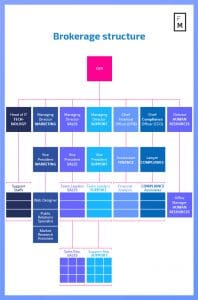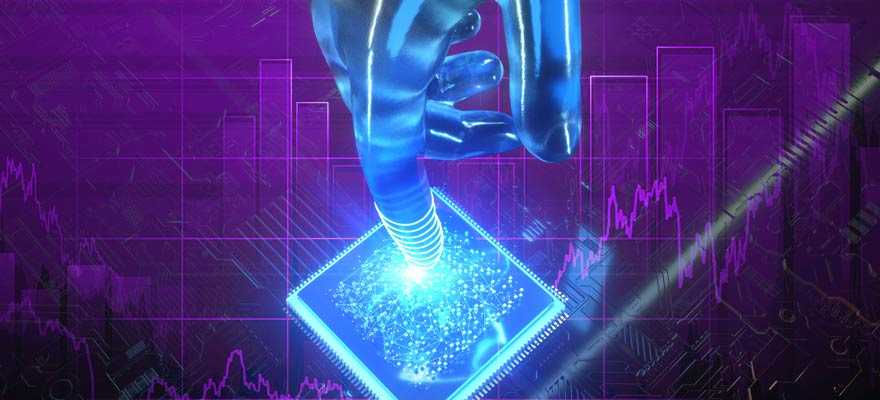This is the final article in a four-part series which aims to dive into the various aspects of human resources in the Forex industry and uncover the current and future trends. You can read the first, second and third article online now.
Technology has revolutionised modern society - the way we live, the way we work. You name it and technology has made an impact. The same, of course, can be said of the foreign exchange (forex) industry - particularly in regards to automation, artificial technology, Blockchain and more.
Automation, in particular, is a dominant presence - not just in the forex industry, but in the wider job market. With robots replacing workers and the value of certain trades and skills becoming less and less needed, it is changing the global market as we know it.
So how is this relevant to the forex industry? Well, it appears that automation is going to change the structure of brokerages. It may even be the death of some departments and professions within the forex industry.
The structure of brokerages
The structure of brokerages depends, of course, on the broker. Are they an institutional broker, retail, commodities, forex or a combination? The purpose of the broker has a large impact on its set up. However, there are certain departments that are consistent across pretty much all brokers.
Generally, a broker will have a compliance department and, depending on the size, a separate legal department. Like many companies, there will be an accounting and finance team, IT and engineering, customer support, human resources and, of course, the sales department.
Boston Technologies, a provider of software and trading platforms to institutional and retail FX and CFD brokerage firms, provided the below as a general outline of how a mid-sized broker is structured. The company deliberately excluded a development team, as the structure assumes the broker outsources this department.

Some of the more recent departments that are becoming consistent across brokerages is a marketing and/or communications department. In recent years, there has been a notable uptick in the number of marketing and communication roles. Particularly those with a focus on SEO, social media and content. This is, of course, the direct result of the growing importance of social media and online marketing in our society.
Another department to grow in popularity is the retention department. This department solely focuses on keeping clients of the firm and is separate from the sales team, as their priority is more on relationship maintenance then to attract new clients.
Whilst some departments are growing in their importance the structure is more or less the same as it was five years ago.
What does automation mean for the forex industry?
It means a lot of things. Automation is changing the industry, from fast and accurate executions of trades, quick transactions and instant identify verification. Large investment banks such as JPMorgan, the largest FX dealer by global volume, are making big steps in automation. This year, news broke that JP Morgan was developing an AI robot. This will execute trades in place of human traders.
At the beginning of 2017, it was also discovered that Goldman Sach’s New York headquarters sacked 600 traders and replaced them with around 200 computer engineers who are overseeing automated trading programs.
Automation is a cheat sheet. some things you need to do by hand so that you're better aligned with the market. #forex
— Nikhil Mahadea (@Invest4Retire) 19 November 2018
Ioanna Vlassi, an executive director and owner of Unirec, a firm specializing in strategic consulting and executive searching in finance and fintech, said to Finance Magnates: “Automation also is absolutely mandatory.”
She highlights that automation is a must for being relevant in Asian-based markets and a rising trend in Europe, noting that technology in the forex industry in countries such as Cyprus is rapidly growing. However, automation isn’t cheap. It requires IT infrastructure, research and development teams. Whilst in the long run automation does reduce costs, brokers need to be willing to front the costs now for future perks.
So whilst automation is definitely having an impact on the forex industry, there’s no need to expect a change overnight.
Is it time to say goodbye to dealing desks?
One thing that does look certain, however, is the eradication of dealing desks. Brokers across Europe are now investing more time and resources to have these processes automated, saving them time and money in the long run.

Ioanna Vlassi
Specifically, Vlassi states: “We will see possibly the extinction of the dealing desk within the following years, there will be an automated procedure. It will be covered from the systems, the dealer."
However, Vlassi points out that dealing desks will remain part of large investment banks for a while. This is because these financial institutions are slower to change their systems. So what does this mean for professionals about to start their career in the forex industry? Well, perhaps it's not the best decision to go into dealing.
“I think if anyone wants to be a dealer, maybe they should think twice… It's going to be automated from what I see. So it's going to be extinct the next couple years I think... It's already starting to happen,” Vlassi added.






















